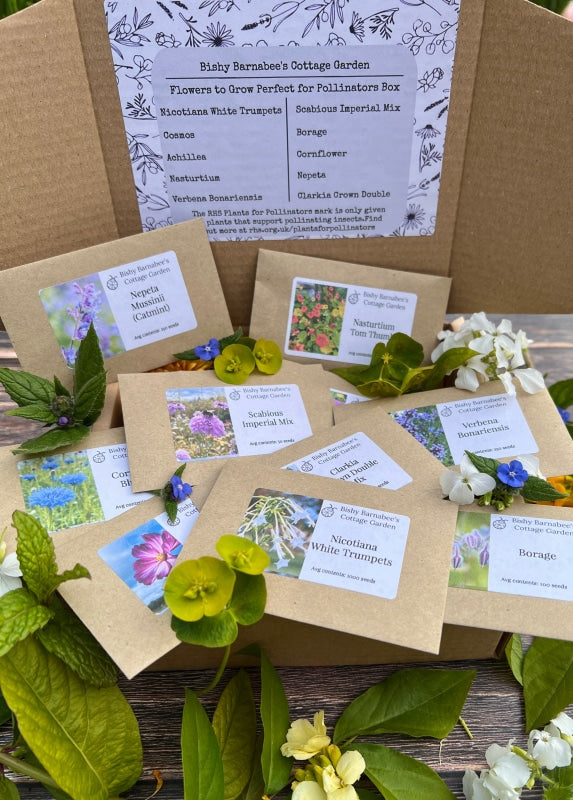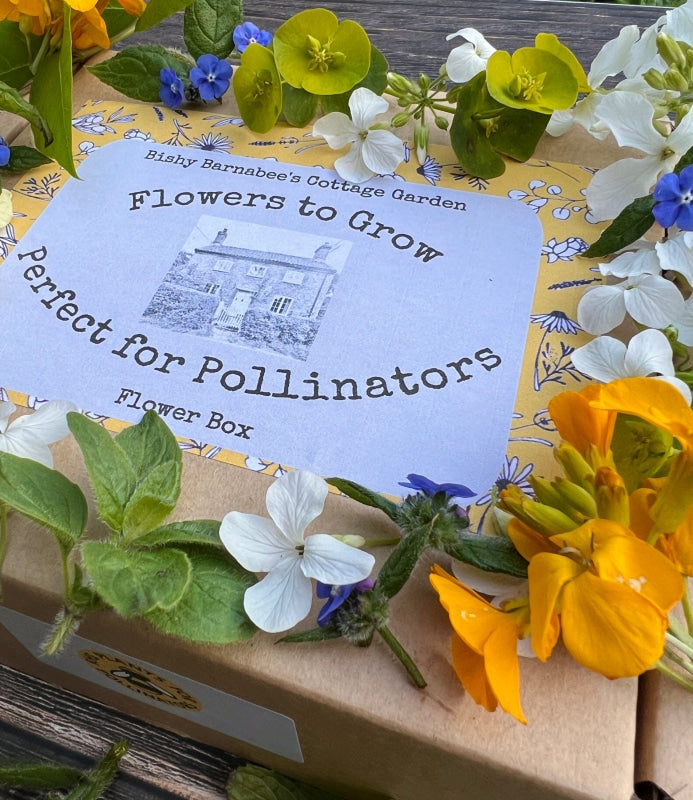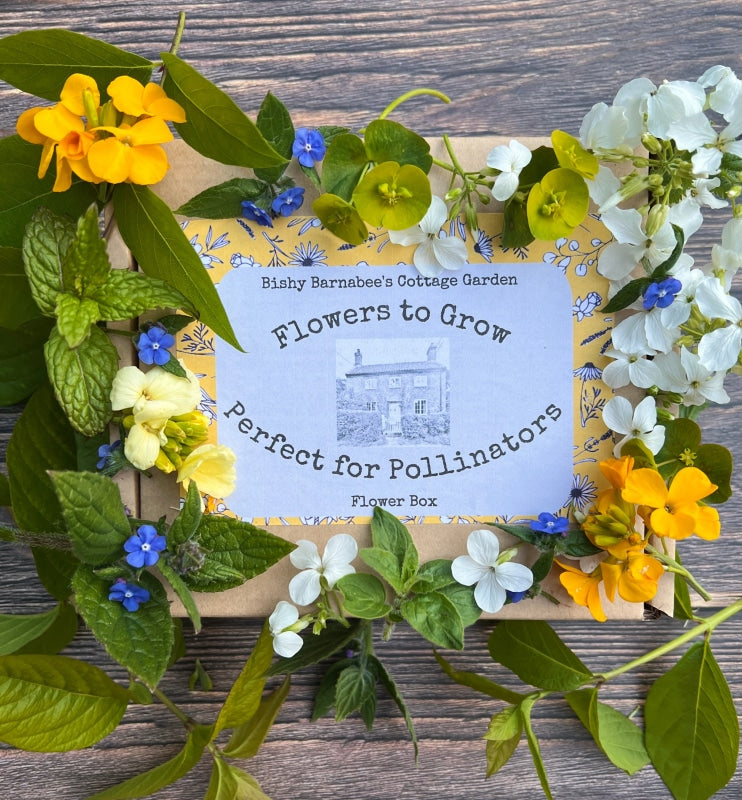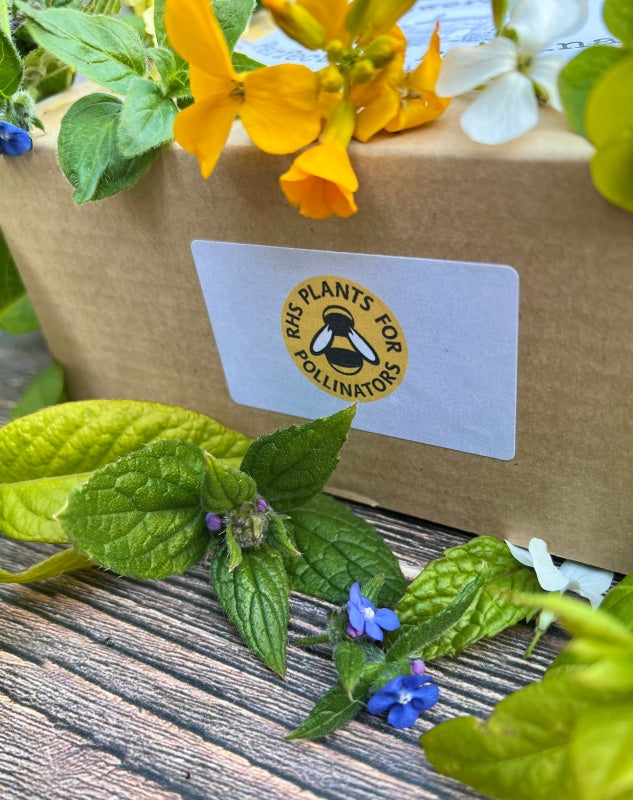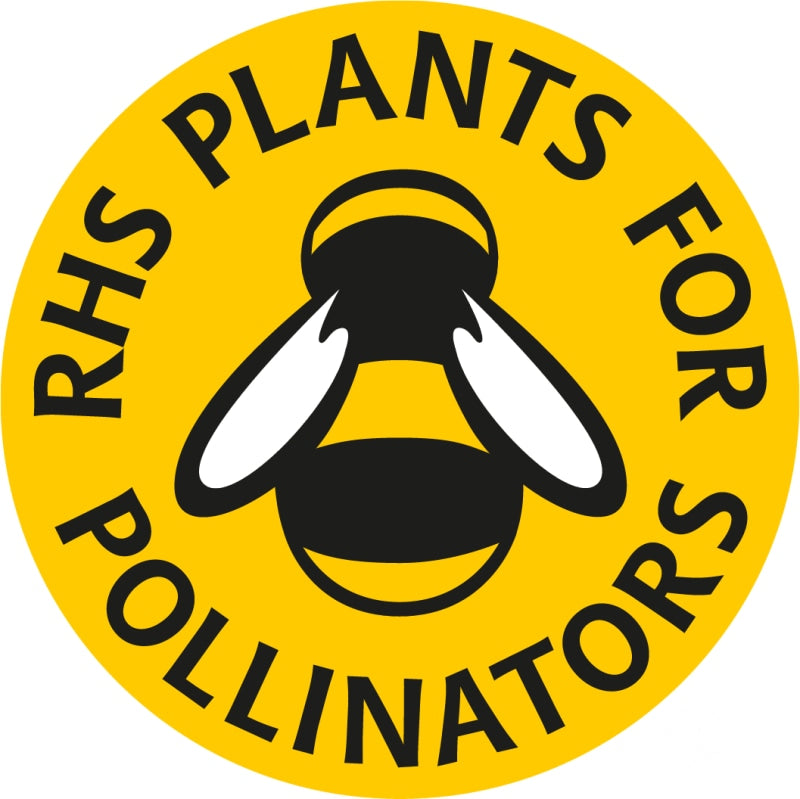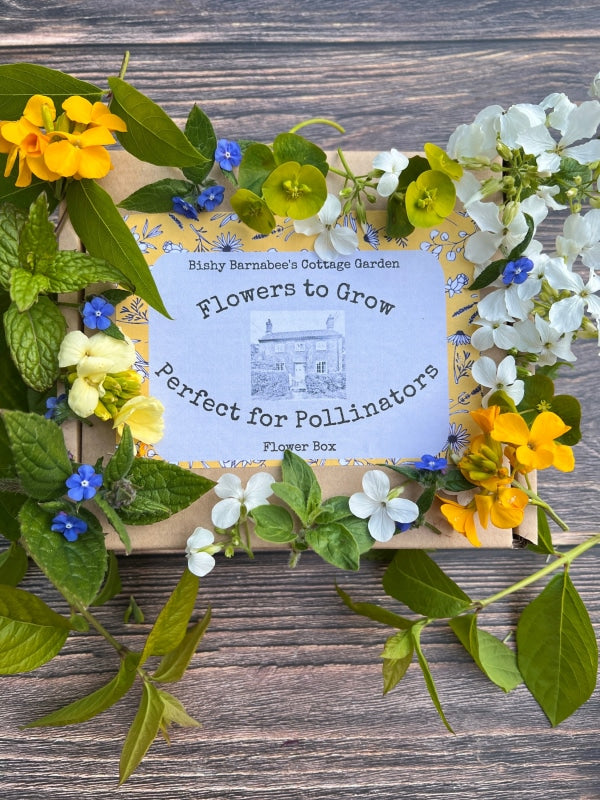Tax included.
We all know how important bees and other pollinators are to our lives and food production.....and we also all know that sadly these precious pollinators are in decline 🐝
One of the biggest problems pollinators face is a lack of flowering plants, especially those packed with pollen and nectar.
So we can all play a part and help these gorgeous creatures by planting as many of these plants as we can in our gardens and welcoming in the bees and butterflies! 🦋
Using the RHS' comprehensive list of flowering Plants for Pollinators as our guide we have created a fabulous box filled with 10 packets of wonderful flower seeds to grow in your garden.
Not only will they look stunningly beautiful as they bloom, they will also encourage in a variety of pollinators who will benefit from their nectar-rich flowers.
The box contains:
Nicotiana White Trumpets....Trumpet-shaped flowers in white that emit a wonderful aroma in the evening.
Scabious Imperial Mix...A gorgeous cottage garden favourite with a fantastic long flowering season.
Achillea....A fabulous, long-flowering plant. Ideal for wildlife gardens
Nasturtium....Wonderful ground cover in beautiful shades of orange and yellow.
Verbena bonariensis....tall, light and airy; this plant will provide you with a haze of purple all summer long.
Cornflowers.....no cottage garden is complete without the gorgeous cornflower. Beloved by bees and butterflies.
Clarkia Crown Double Mix....A beautiful, old-fashioned cottage garden flower. Drifts of pink, red, mauve and white flowers. Good for cutting...great for pollinators!
Borage....Pretty, blue, star-shaped flowers, the pollinators are drawn to it like a magnet.
Cosmos....Enchanting flowers and feathery foliage. Cosmos produces masses of flowers for months. Keep on cutting to encourage more blooms.
Nepeta....Absolutely perfect for a wildlife garden. It has pretty blue/grey aromatic leaves and lavender-blue flower spikes.

RHS Plants for Pollinators.
The RHS Plants for Pollinators mark is only given to plants that support pollinating insects.
Find out more at rhs.org.uk/plantsforpollinators











